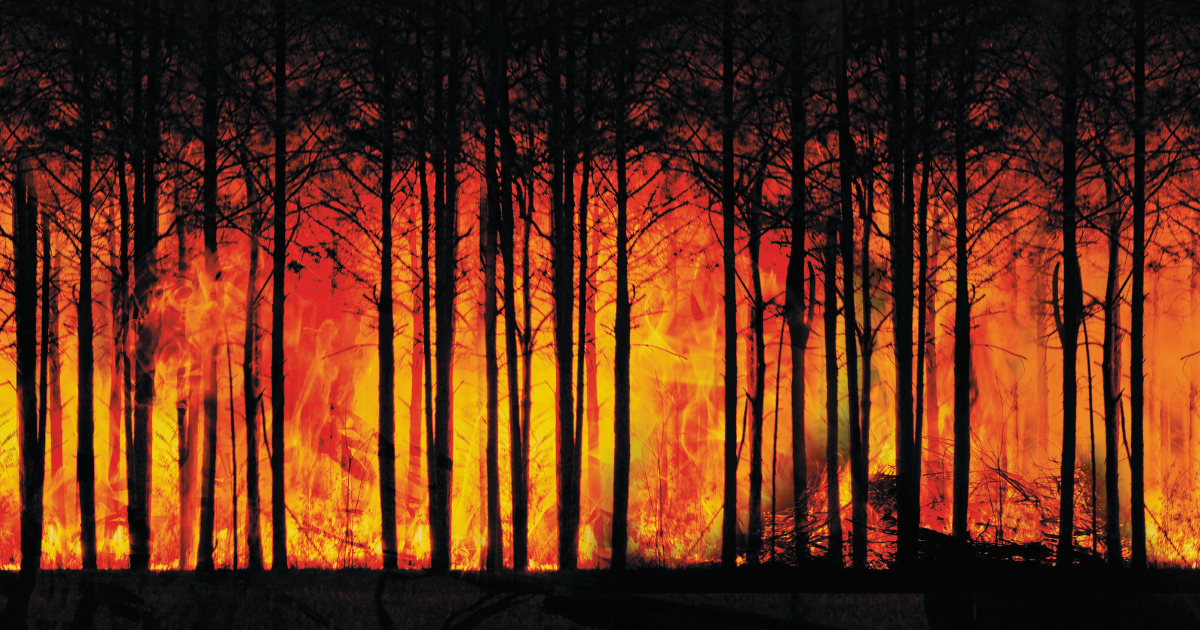In This Section
UCC contributes to major global report on plant biodiversity

BEES plant scientist, Dr Eoin Lettice, has contributed to a new report that takes a deep dive into the state of the world’s plant and fungal kingdoms globally.
The new data, the result of a huge and unprecedented international collaboration bringing together 210 scientists from 42 countries, show how we are currently using plants and fungi, what useful properties we are missing, and what we risk losing.
UCC plant scientist Dr Eoin Lettice is one of the co-authors of State of the World's Plants and Fungi, published today (September 30th, 2020), by the Royal Botanic Gardens, Kew.
Dr Lettice said the publication comes at a critical time for global biodiversity:
“We live in a time of unprecedented biodiversity loss. Today's report sheds light on the extinction risk of plants and fungi globally, with 2 in 5 plants now at risk of being wiped out. Given the importance of plants to society – they give us medicines, food, beverages, clothes, energy, and more – it’s never been more important that we identify, record and protect species wherever we find them and that we do that quickly, before it’s too late”.
Proud to be one of 210 researchers from 42 countries who contributed to this important report.
— Dr Eoin Lettice (@eoinlettice) September 30, 2020
Plants & fungi can solve urgent problems that threaten human life, but these vital resources are compromised by biodiversity loss. https://t.co/590g7FFHrl #SOTWPF @kewgardens @UCC pic.twitter.com/4gDlpUud9o
Plants and fungi are the building blocks of life on planet Earth. They have the potential to solve urgent problems that threaten human life, but these vital resources are being compromised by biodiversity loss. The report highlights the pressing need to explore the solutions that plants and fungi could provide, to address some of the pressures facing people and the planet. These pressures include the triple threats of climate change, biodiversity loss, and food security.
The challenges in sustainably using plants and fungi to supply food to an ever-increasing human population is highlighted in the report.
“Just 15 plants provide 90% of humanity’s food energy intake. Our report shows that there are at least 7,039 edible plant species known to science. These novel crops could hold the key to feeding a growing global population,” said Dr Lettice.
The report also highlights the importance of Crop Wild Relatives (CWR). These are plants that are related to cultivated crops and could be used to introduce important traits like disease resistance into commonly grown crops. Such efforts would employ a mixture of traditional plant breeding and novel biotechnological approaches like genetic modification and gene-editing.
“Commercial crops like potato, wheat, rice and so on have been bred to produce high yields and in that regard they have been successful”, said Dr Lettice.
“Unfortunately, they have not always been bred to possess traits like resistance to new pests and diseases or the capacity to thrive under changing climatic conditions. We need to look back at the ‘family tree’ of these crops to see if there are wild relatives with useful characteristics that can now make our modern crops more adaptable”.
On a positive note, the team at Kew announce today that 1,942 plant species and 1,886 fungal species were named as new to science in 2019. Among these exciting discoveries are species that might be valuable as foods, drinks or medicines. Highlights include:
- Six new species of Allium, the plant group to which garlic, onions, leeks and chives belong have been discovered.
- 10 previously undescribed relatives of spinach have come to light in California.
- 30 previously unnamed species of Camellia, the group to which tea belongs, were found in China and mainland South-East Asia.
- A new species of Artemisia has been located in Tibet. It is closely related to a plant species that is used to treat malaria.
- Three new species related to evening primrose have been discovered. Other plants in this group produce gamma linoleic acids used to treat sclerosis, eczema and psoriasis.
The underlying data behind today’s report is also published in a series of 12 scientific research papers made freely available in the leading journal Plants, People, Planet.
School of Biological, Earth and Environmental Sciences
An Scoil Eolaíochtaí Bitheolaíocha, Domhaneolaíocha agus Comhshaoil
Contact us
Distillery Fields, North Mall, University College Cork, Ireland , T23 TK30
